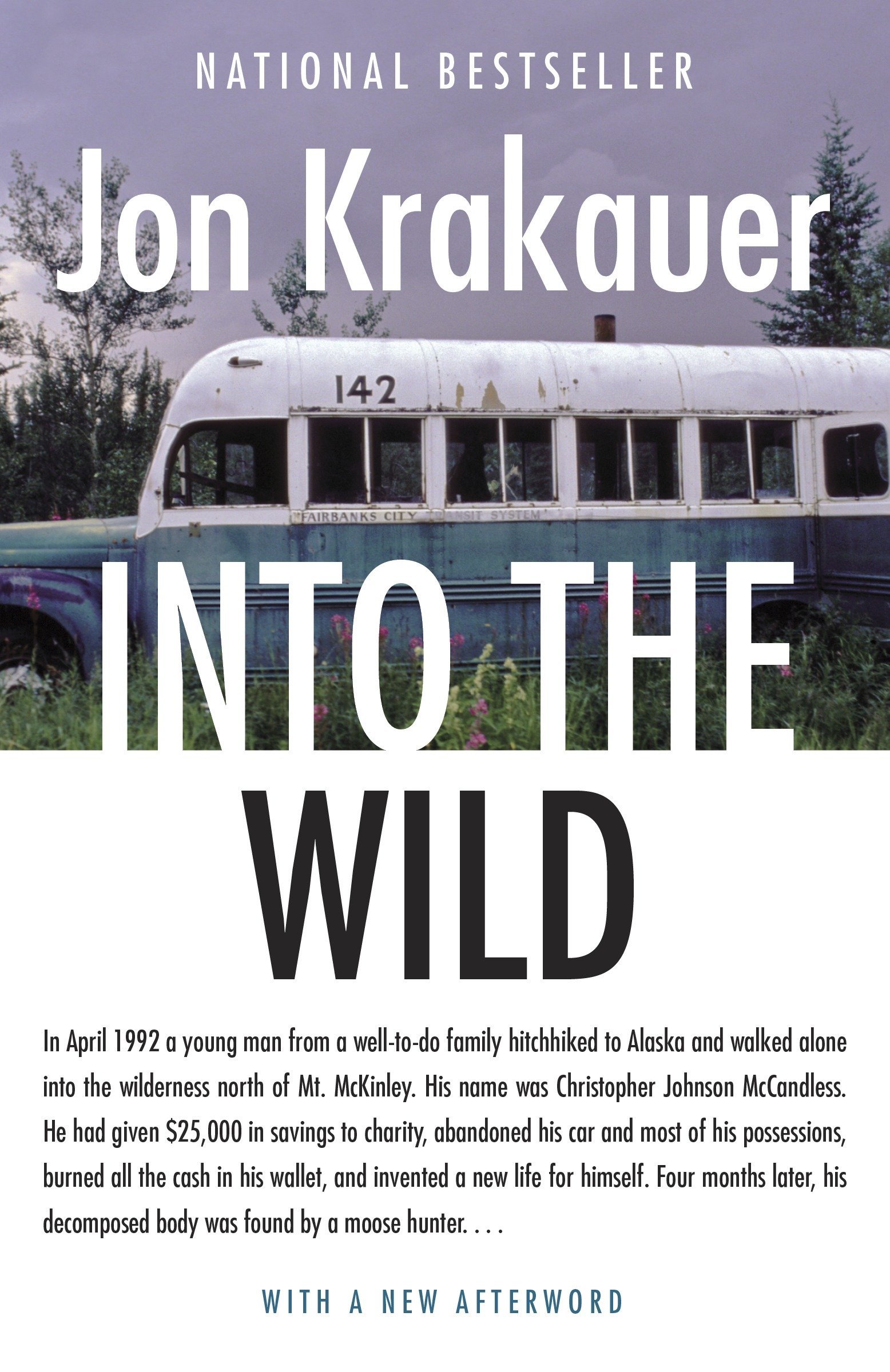
From rvalibrary.org
Into the Wild, by Jon Krakauer is a story about the fascinating life of Chris McCandless. A young man, fresh off of receiving a college degree, decides to abandon ordinary society and try a life on the road and in the Alaskan wilderness. Although I would have never read this story if not assigned to me during my junior year of high school English class, I am glad it was due to the level of knowledge and understanding perspectives I gained.
McCandless decided to abandon his family, friends, and future career to make his way from the Southwest region of the United States, all the way up to Alaska. With little money or material belongings, he hitchhiked or walked until he reached his destination. Many people considered him dumb and selfish for leaving his family and future behind just to go camping, which ended up killing him, but I saw it differently.
Another aspect of life this book helped me realize is self-discovery. The importance of setting your own standards and living by them is something that I was not great at as a 16-year-old high school kid but think I have dramatically improved on it. Chris’s decision to leave the comfort of society, although frowned upon by many, was the best decision he ever made because he got to live the way we wanted. In my life, coming to college far away from home and without anyone I had previously known was a similar experience. A lot of my friends told me I should go to college near my hometown, although I may have been more comfortable at a college near my hometown, which a lot of my friends ended up doing, I would miss out on the new experiences and tests to adapt to a new area. I appreciate them for encouraging me to stay closer to them and home, but like McCandless, I wanted to live out my own desire without input from any outside sources.
It is important that throughout this story, the reader develops new understandings for success and the importance of self-discovery. While McCandless did end up dying of starvation, he completed a 2,500-mile trip and 113 days in the wilderness. before. Some say it was inevitable and that he would have lived a better life at home, however I respected him for what dangers and challenged he faced and persevered through. His journey helped alter my definition of success. He died doing what he planned on doing, and knew the risk involved. While he may have only made it 113 days, many people including me, would have not made it three days. My definition of success transitioned from a materialistic win, such as a trophy or winning money, to just completing what you want. Nobody else had standards for Chris McCandless along this trip, he wouldn’t even tell people his real name or what he was doing while hitchhiking. At this point in my life, success is a personal measurement, and I think this book helped me realize that.

From media.npr.org on pinterest
The story of Chris McCandless is a very unique one, and also a true one. The novel by Krakauer was based on real life events, which can be seen in the movie, teaches and enhances many fundamental and important beliefs. My outlook on success and self-discovery were both enhanced and personalized. Without this story, I may have been more hesitant leaving my comfort zone for college or struggled accepting myself for my own personal standards and not worrying about what others would believe. I urge any young adult to read this story and look at it with the perspective of respect, instead of ignorance. Although leaving a familiar area, person, or thought behind can be rough, it can also benefit one more than anticipated.